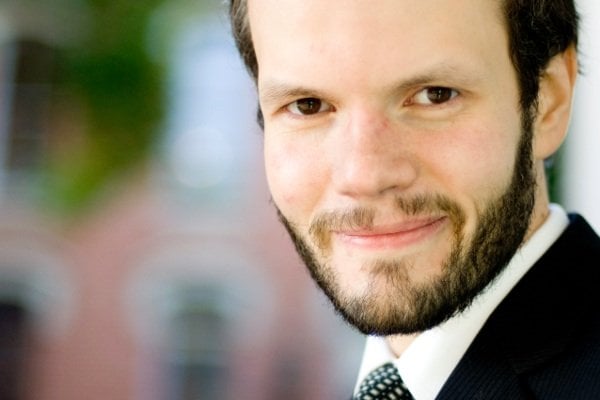Sean Holman is a pioneer in Canadian independent digital journalism, breaking many stories on Public Eye, the site he founded in 2003, the year The Tyee started. Holman focused his reporting on B.C. governmental affairs, bringing down a minister with one exposé, relentlessly pushing to lay bare corruption and conflicts of interest.
He shut Public Eye in 2011 for lack of funds, later starting Sean Holman’s Unknowable Country after becoming a professor of journalism at Mount Royal University in Calgary. Holman’s documentary Whipped is a powerful critique of the lockstep, anti-democratic way laws are made in Canada. Built on interviews with complicit politicians, Whipped makes the case for sweeping legislative reform echoed by Rafe Mair in his columns in these pages.
The Tyee caught up with Holman to get an update on his work and invite his reflections on the passing of Mair and the new journalism fund The Tyee is establishing in his name (find out more or contribute here).
Here is what Holman had to say...
On the open ‘conspiracy’ most media won’t acknowledge:
“In the ‘70s, then Globe and Mail columnist Geoffrey Stevens wrote that there is a conspiracy between the press and politicians in Canada. ‘Opposition parties pretend that, if they were in power, they would do good things that the government doesn’t want to do, because they are inconvenient or potentially troublesome, politically. For its part, the press pretends that, yes, the opposition parties would actually do these things, given the opportunitity. We all know they probably wouldn’t, that (at the risk of being cynical) all parties act in much the same way in office.’
“This describes the state of democratic reform in Canada in the past. It describes the state of democratic reform in Canada today. And it will likely describe the state of democratic reform in Canada in the future unless we educate ourselves about how our political system actually works and start talking about what we actually want out of it.
“As part of that process, I’m writing a book about the early history of freedom of information in Canada. We literally don’t know what we don’t allow to be known in this country. And I think Canadians would be shocked if they did.”
On Canada’s democracy myth:
“Whenever Rafe wrote about democracy on The Tyee, I would think, ‘Yes! This.’ It was always comforting to know there was someone else willing to tell the truth about our political system.
“I say political system because we’re often told and assume we live in a democracy. But we don’t. Rafe, unlike so many other current and former politicians, was willing to tell that truth to anyone who would listen. He would talk about how our representatives aren’t actually allowed to publicly represent their constituents or even their own conscience. He would talk about how our representatives can only do what their party allows them to do. And he would rail against the secrecy and money that corrupts our politics, speaking with the authority of someone who has sat at caucus and cabinet tables.
“As a result, Rafe was an ally to anyone who was interested in holding government to account. He understood the need to investigate and critique it. Because without such investigation and criticism, change rarely happens. It’s an essential part of a democracy and, unfortunately, one that many of our politicians would rather do without.”
On Rafe Mair’s (too small) fight club:
“He was a fighter. He never gave up. And, as a fellow fighter, I can appreciate that.
“As the host of one of the most popular radio shows in the province, Rafe wasn’t afraid to ask tough questions of his guests, particularly government officials. I think that made it easier for other less popular and powerful broadcasters and journalists to do the same thing. Sadly, there are too few Canadian broadcasters today who have continued this tradition.”
On why people should contribute to the Rafe Mair journalism fund:
“Rafe knew the project of holding government to account was larger than any one person. And he was always willing to support and provide a platform for anyone who was working on that project. I can think of no better way to remember him than a fund that will do exactly that.”
There are 13 days left to reach a $50,000 goal for the Rafe Mair Memorial Fund for environmental reporting. To see where we stand, and learn more, click here. ![]()
















Tyee Commenting Guidelines
Comments that violate guidelines risk being deleted, and violations may result in a temporary or permanent user ban. Maintain the spirit of good conversation to stay in the discussion.
*Please note The Tyee is not a forum for spreading misinformation about COVID-19, denying its existence or minimizing its risk to public health.
Do:
Do not: